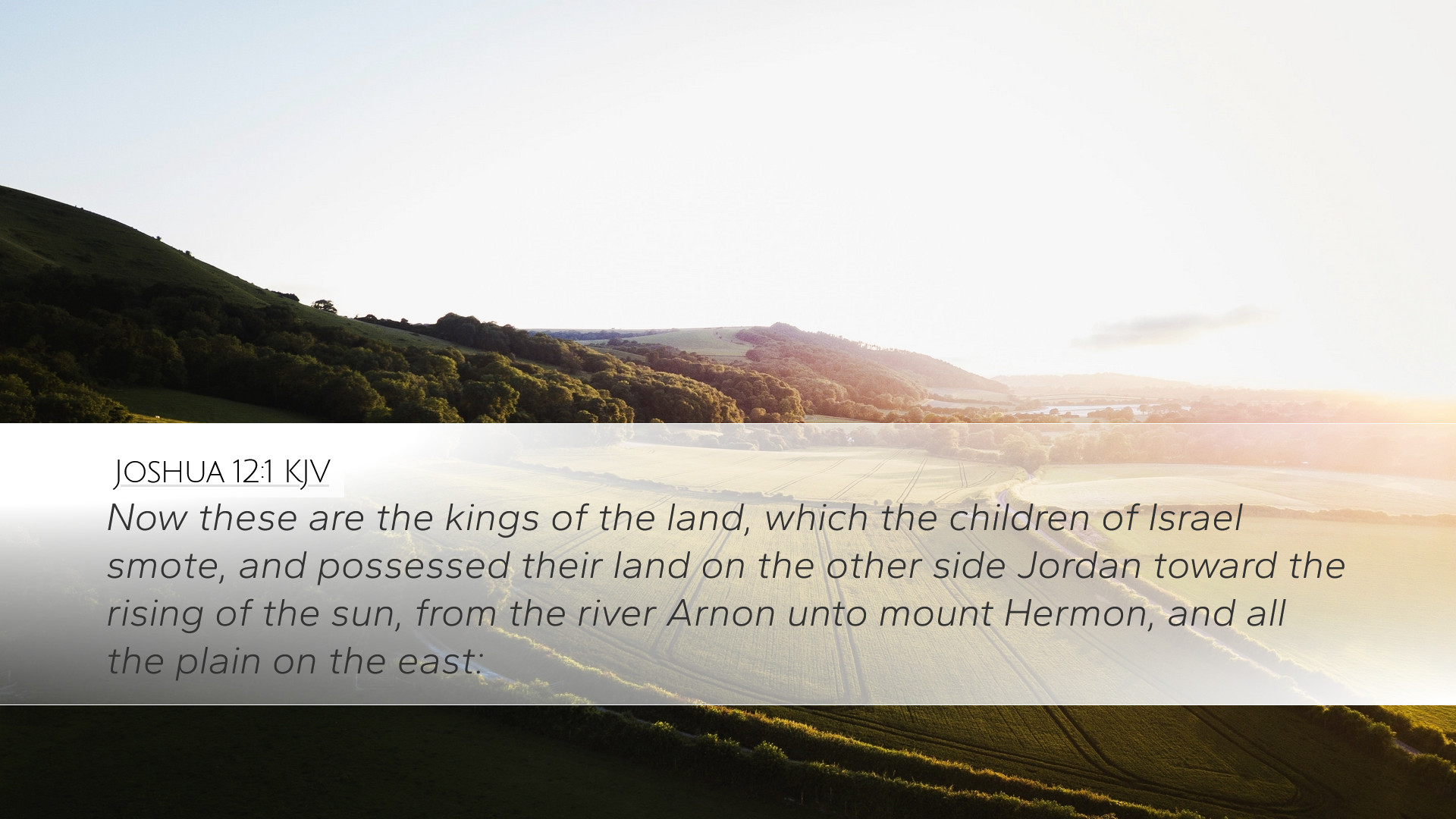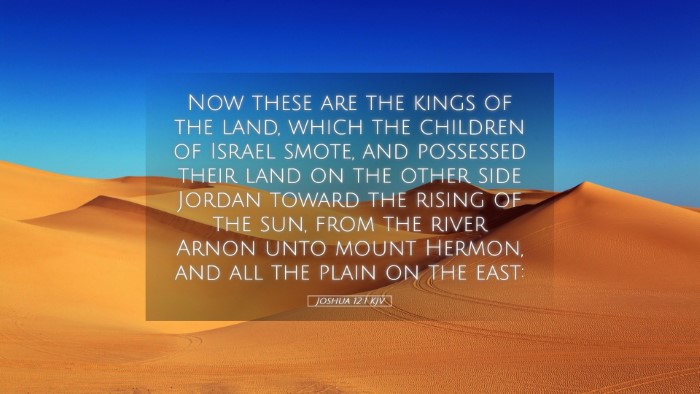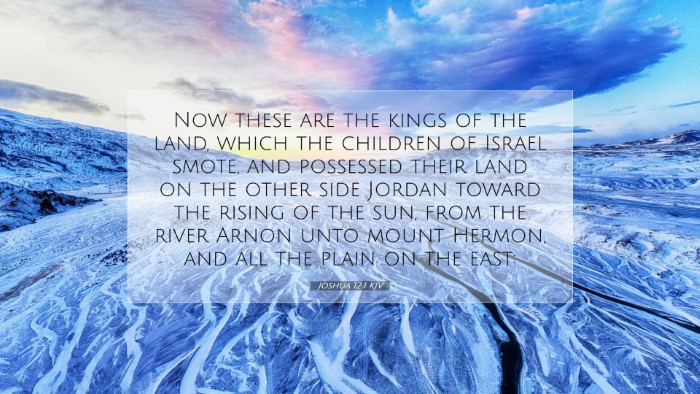Commentary on Joshua 12:1
Verse Reference: Joshua 12:1 - "Now these are the kings of the land, which the children of Israel smote, and the countries of the kings which they possessed, on the other side Jordan toward the sunrising; from the river Arnon unto mount Hermon, and all the plain on the east."
Contextual Background
The book of Joshua is a narrative that recounts the conquest of Canaan under Joshua's leadership after the death of Moses. Chapter 12 serves as a summary of the victories achieved by Israel and the territories that were subdued. This verse specifically identifies the geographical location of the conquests as well as the kings defeated, reinforcing the scope of Israel's victory and the fulfillment of God’s promises.
Insights from Matthew Henry
Matthew Henry draws attention to the comprehensive nature of the conquests listed in this chapter. He underscores that the mention of the kings and their lands signifies not merely the military achievements but also the divine promise that was fulfilled in their possession of the land. Henry notes that the land, “on the other side Jordan,” includes regions that were critical for the Israelites, emphasizing the significance of God’s guidance in their victories. He states:
"The enumeration of these kings serves to demonstrate how thoroughly God, in his faithfulness, performed his promise."
Henry further elaborates that the detail in the listing of conquests might serve as a source of encouragement for believers, showing that God equips His people to conquer adversity, illustrating His sovereignty over all nations and rulers.
Insights from Albert Barnes
Albert Barnes provides a detailed analysis of the geographic and historical significance of the kings mentioned in this verse. He comments that:
"The record of kings is a rite of passage, marking the transition from wilderness wanderings to the establishment in a promised land."
Barnes posits that the land specified, particularly from the Arnon river to Mount Hermon, holds strategic importance, representing the area conquered by Israel that would later shape its national identity. He also highlights that each king defeated represents a challenge overcome through reliance on God, emphasizing the theological theme of victory through faith. This serves as a reflection for the Church today regarding the triumph over spiritual adversaries.
Insights from Adam Clarke
Adam Clarke presents a grammatical and linguistic perspective on the text, emphasizing the phrase “the children of Israel” and its implications. He argues that:
"The victories recounted here are not solely individual achievements but a collective effort of the nation, highlighting unity."
Clarke explains the significance of the eastern territories of Jordan, interpreting them as a demarcation of Israel's expansion, and stresses that the conquest of these lands was essential for the establishment of Israel in Canaan. He emphasizes how the method of recording these victories serves not only as historical documentation but also as a theological narrative, asserting God’s powerful intervention in the affairs of His people.
Theological Reflections
This verse is not merely a recount of battles won but is steeped in theological significance. It reflects God’s promise to His people and the tangible realization of faith through action. It highlights several key themes:
- Divine Sovereignty: The mention of various kings establishes God’s control over political powers, showcasing that no ruler can prevail against His will.
- Collective Identity: The focus on "the children of Israel" emphasizes the importance of community and covenant; victories are a reflection of the collective faith and obedience of the people.
- Faith and Fulfillment: The conquests affirm the faithfulness of God to His promises, encouraging leaders and believers today to trust in divine guidance through trials.
Conclusion
Joshua 12:1 serves as a profound reminder of God’s providential care in the life of the nation of Israel, illustrating not only historical conquests but also spiritual truths essential for today's believers. By examining the insights offered by Matthew Henry, Albert Barnes, and Adam Clarke, we can glean deeper theological reflections that encourage contemporary faith and practice. The passage ultimately beckons readers to recognize the importance of unity, reliance on divine strength, and remembrance of God’s faithful promises.


